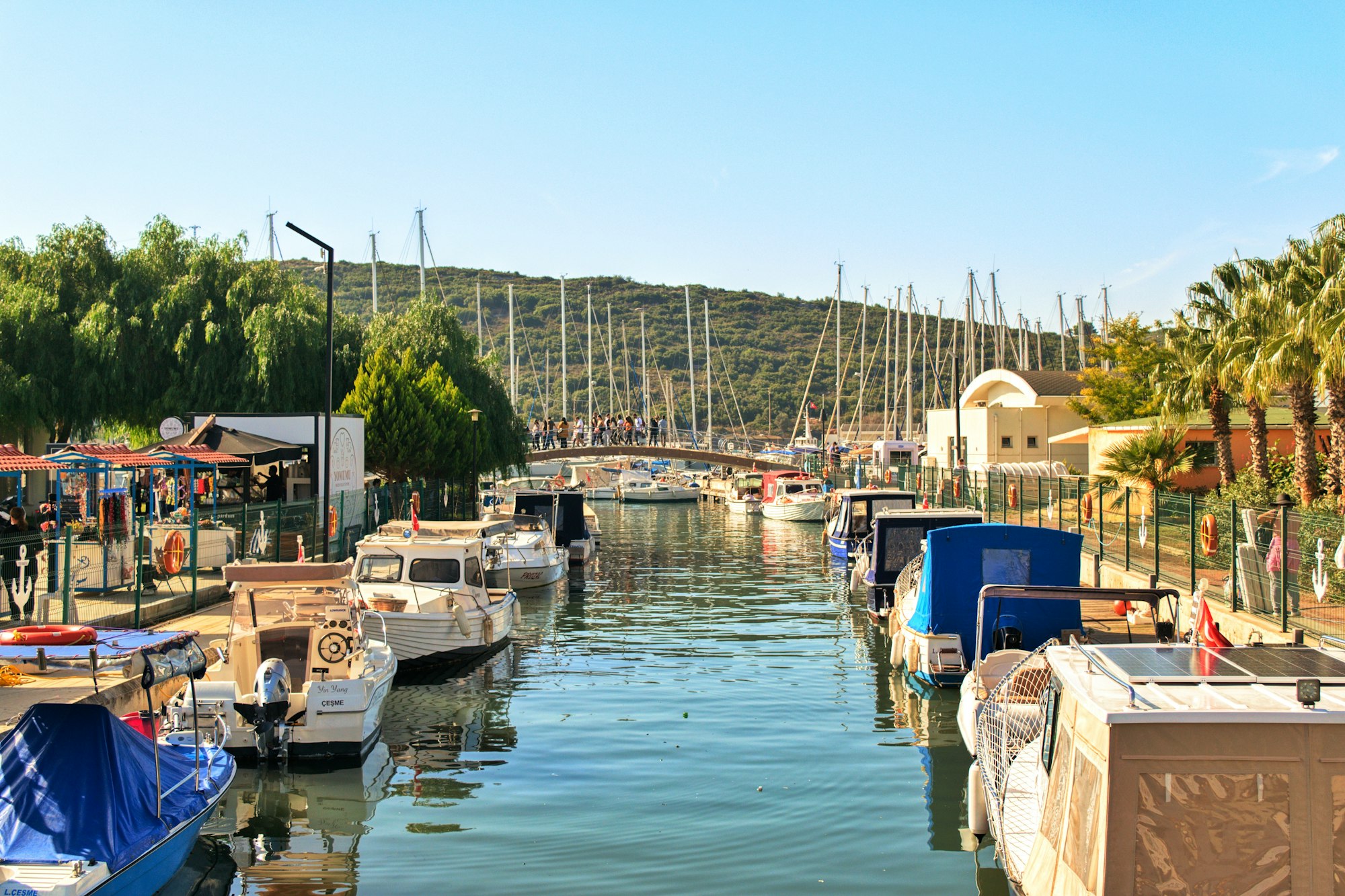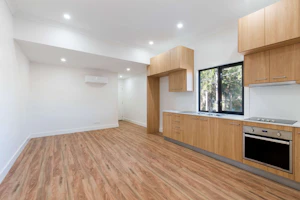Buying a home abroad is hard because there are so many things to think about. For a safe and profitable investment, investors or their agents look at the physical condition of the property as well as the financial and legal aspects of the deal.
Let's talk about what "Due Diligence" is when it comes to real estate, what facts to check, and when it's best to get help from a professional.
What is Due Diligence in Real Estate Investment?
Due diligence is a check that needs to be done before any big deal. It lets you check that the transaction is legal and decide based on accurate information about it.
When it comes to real estate, a buyer needs to learn beforehand whether the object is suitable for investment and won’t bring problems like expensive repairs, low demand and profitability or issues with local authorities after the deal.
The check includes an evaluation of risks, calculation and investigation of the deal’s legitimacy.
Usually, the research is done before making the offer, and the primary Due Diligence is conducted after the offer and before closing the deal. The buyer usually has 1—5 weeks to make all necessary investigations, depending on their agreement with the seller.
Physical Inspection of a Property
A buyer wants to know that the property is in good shape and has a nice atmosphere.
First, the buyer looks at the layout, the condition of the interior and exterior decor, the yard, and the area where the property is located. And once an offer is made, it's time to look more closely.
The physical condition check of a property includes:
- A general inspection that looks at the finishing inside and outside, the structure, and other utilities and mechanical systems.
- Checking the sidewalks, drains, and driveways outside.
- Check to see if there are any bugs in the house and if the materials used to finish it are safe.
The inspection finds any leaks, cracks, mold, or other problems. Some of them might be able to be fixed before the deal goes through, so ask the seller if they can. And if you have a lot to make, look for repair offers that could help you lower the price.
Also, it's important to look at the surrounding area:
- Check to see if all the things you need are nearby, like shops, restaurants, schools, and hospitals.
- So what about the environment? Find out if the building may be affected by flooding or humidity and if it gets cold in the winter in the chosen area. To do this, check the weather and geography of the area. These facts will help you decide whether you need more insurance or repairs.
- Check to see if there are any nearby plots of land that can be developed. If there are any, check to see what kinds of buildings can be built there, and if you can, get a building plan from a local land department.
Also, an investor can talk to neighbours to learn whether the area is safe and comfortable to live in, check the local crime rates and visit the area several times a week.
Financial Due Diligence in Real Estate Investment
If an investor buys a house to rent it out, they need to figure out how much money they can expect to make. When making a final decision, you also need to think about costs like maintenance and taxes.

On the financial Due Diligence checklist are:
- Appraisal of real estate by a licensed appraiser. It tells if the price of the property is too high. Also, if you buy a home and want to apply for residency or citizenship by investment, it may be important. For example, in Turkey, if the purchase is an investment to get citizenship, the price in the appraisal and the contract must be the same.
- How to figure out taxes and fees when buying and owning property.
- An assessment of maintenance costs, such as electricity bills and internet fees.
- Estimate the cost of repairs and decorating.
- Asking the seller for proof that they don't owe any money on their taxes, mortgage, or utility bills.
- Looking up the rent prices of similar properties in the chosen area to figure out if it will be profitable.
This information helps buyers decide if the cost-to-future-income ratio is right for them.
Legal Due Diligence in Real Estate Investment
Lastly, a buyer checks to make sure that the deal is legal. This is important because mistakes in documents can lead to fines, the deal to sell or buy being canceled, or other things.
Check these things before you sign a contract:
- Title documents. Find out who owns the land and if everyone is happy with the deals.
- Debts, such as a mortgage or an inheritance.
- Renovations. Any changes, like tearing down walls, putting glass on balconies, or moving a bathroom, must be agreed upon with the local government.
- All the necessary permissions for a property that is still being built.
- There are rules about renting out the properties, such as restrictions, the need to get extra permission, or the need to buy insurance.
Some countries make it hard for foreigners to buy or rent real estate. It could mean extra costs and the need to buy a home in a certain area. In Malta, for example, only in "Specially Designated Areas" can non-EU citizens buy properties to rent out without any restrictions. Outside the SDAs, a foreigner can only buy property after paying €233 for a special AIP permit and not renting it out.
If an investor buys real estate to become a resident or a citizen, the property must follow the rules of the program. If not, a costly purchase won't help a person get the status they want.
Properties in programs that offer residency or citizenship for an investment
What to Do if You Identify Issues: The Rights of a Home Buyer
If an investor finds things wrong with the property, they can do one of three things: back out of the deal, fix the problems themselves, or ask the seller to do it.
If the seller is willing to work out the problems, the contract must be changed to include all the solutions.
Some problems, like major construction flaws or a noisy bar close by, may be impossible for the seller to fix. When this happens, a buyer must decide whether to buy the property despite its flaws or look for something else to buy.
Reasons You Should Use an Agent to Buy a Home Abroad
Citizenship and residency by investment programs often let people join if they buy real estate. Some of them require the help of an agent, but it may be hard to buy property abroad without the help of a professional.
Here are some reasons why it might be a good idea to use an experienced agent when buying real estate.
The best service. If an investor buys property abroad on their own, they have to spend time and money on:
- searching for a fit-and-proper object;
- contacting local realtors, advocates and notaries;
- conducting Due Diligence before signing a deal;
- getting a tax number;
- opening a bank account, etc.
If investors go to an agent, they can easily give this work to someone else and get a good result. Real estate agents and lawyers do their Due Diligence. They also prepare the deal's paperwork and, if necessary, help the investor open a bank account and get a tax number.
The process of buying is pretty quick. Real estate agents and lawyers who work for Ikamet check out the properties that investors want to buy and help close deals. Also, we offer our clients real estate that has already been checked and help them choose things that fit their goals and budget.
We check the properties before Due Diligence ends, so the clients don't have to wait. This makes the deals go through faster.
Experience in foreign markets. When buying property overseas, it's important to have professional connections and know how the real estate market works there.
We have offices in six countries and have worked for years in a number of different areas. Our lawyers know how real estate deals work in the countries where our clients move to or become citizens. This makes sure that the deals go smoothly.
I sometimes hear that buying a house in some countries is a breeze. But good deals on websites that sell real estate and friendly managers don't guarantee a safe and legal deal.
In Greece, for example, a lot of second-hand properties have encumbrance. Also, it's common for an item to have more than one owner. I heard about a case where there were about 30 owners of an apartment, and half of them were against the deal. The buyer had already spent time and money getting ready for the deal, so it was over.
Follow the rules for becoming a citizen or getting residency. When investors buy real estate to take part in citizenship or residency by investment programs, they need to make sure the properties are good.
In some countries, like Antigua and Barbuda, Dominica, Grenada, St. Lucia, and St. Kitts and Nevis, investors can only invest in things that the government has already approved. And investors are required by law to get help from a licensed agent when they want to apply for citizenship.

In other countries, like Portugal or Turkey, the government doesn't give investors a list of approved properties to choose from. Investors don't have to use licensed agents. But there are some rules. For example, investors can't get a Golden Visa in Portugal if they buy a home in Lisbon, Porto, or most coastal areas on the mainland. And in every country, a buyer should pay attention to how the market is different.
When an investor wants to become a citizen of Turkey, the only thing that matters is how much the property is worth. And this value might be less than the one in the sale and purchase contract.
For the citizenship-by-investment program, you have to put at least $400,000 into real estate. Investors sometimes buy villas or apartments for this price or more, but their applications are turned down because they didn't put enough money down. To meet the rules and be able to apply again, they buy other properties.
If an investor comes to Ikamet to get a second citizenship or a permit to live in the country, we give them things that meet the requirements of both programs.
Detailed data analysis. Ikamet gives investors detailed descriptions of the properties, starting with where they are and what kind of infrastructure is nearby and ending with an estimate of how much money they could make.
We look at the data from the top real estate brokerage firms to see if buying a property in certain areas is a good investment and how profitable certain types of real estate are. Our clients get information that is accurate and up-to-date so that they can make good decisions.
Real Estate Due Diligence: A Checklist
- Due diligence is a check that is done before a deal is made in real estate. It's like the buyer's "homework" before making a decision to buy.
- The buyer can be sure that the property is in good shape and that the deal is legal by doing a thorough inspection. Also, if flaws are found, an investor may be able to negotiate a lower price.
- An investor needs to make sure that the property is in good shape and doesn't have any major flaws in the way it was built, dangerous materials used in the finishing, or bugs. Also, it's important to look at the area around you.
- Financial due diligence for real estate includes appraising the property, figuring out extra costs like taxes, fees, and maintenance, and figuring out how much money the property is expected to make. Also, you need to make sure that the previous owner has no tax, mortgage, or utility bill debts.
- Legal Due Diligence includes checking the property's title documents, liens, renovations, permissions, and local laws about buying and renting out homes.
- A buyer can ask the seller to fix certain problems. If both parties agree, they add a change to the sale and purchase agreement.
- If you want to buy a house abroad, it might be easier and safer to work with a real estate agent who knows the local market. And help is even more important if you want to get citizenship or residency by making an investment, because a mistake can cost an investor their status.
Frequently asked questions
Looking for more info? Here are some things we're commonly asked
What is real estate Due Diligence?
It is a check that is done before a deal is made. A buyer checks to see if the item is a good investment and looks into how legal the transaction is.
What is the purpose of the Due Diligence when buying real estate?
The goal of real estate due diligence is to make an investment that is safe and makes money. And if you buy real estate through a citizenship or residency by investment program, you need to make sure the property meets the requirements.
Why is Due Diligence necessary in deals with real estate?
The check lets the buyer know if the property is good for investment and won't come with extra costs or problems like low demand, low profits, or fines from local authorities after the deal.
What are the three types of real estate Due Diligence?
During the real estate Due Diligence, the property's financial and legal issues, as well as its physical condition, are looked at.
How to conduct real estate Due Diligence?
An investor has to ask for a general inspection to find out how the property looks and works. Also, it might help to talk to the neighbors and look around the area to see if it is safe and pleasant to live in.
Due Diligence in the financial area is the next step. A buyer asks for a professional appraisal, figures out all the extra costs, such as taxes, fees, repairs, and utilities, and figures out how profitable the property is.
Also, it's important to make sure the deal is legal. Check the title documents, liens, renovations, all permissions needed, and local laws about buying and renting out real estate.
If you want to give these tasks to someone else, an experienced agent might be a good choice.
What to check if I buy a property for residency or citizenship by investment?
Make sure the property meets the requirements of the Investment Migration Program.
There are different rules in different parts of Turkey. For example, in metropolitan cities, the value of a home must be more than $75,000 and in small cities, it must be more than $50,000. You have to pay $400,000 to become a citizen through investment. In Turkey, the contract price must match the appraisal price for the investor to be able to apply for citizenship.











Member discussion